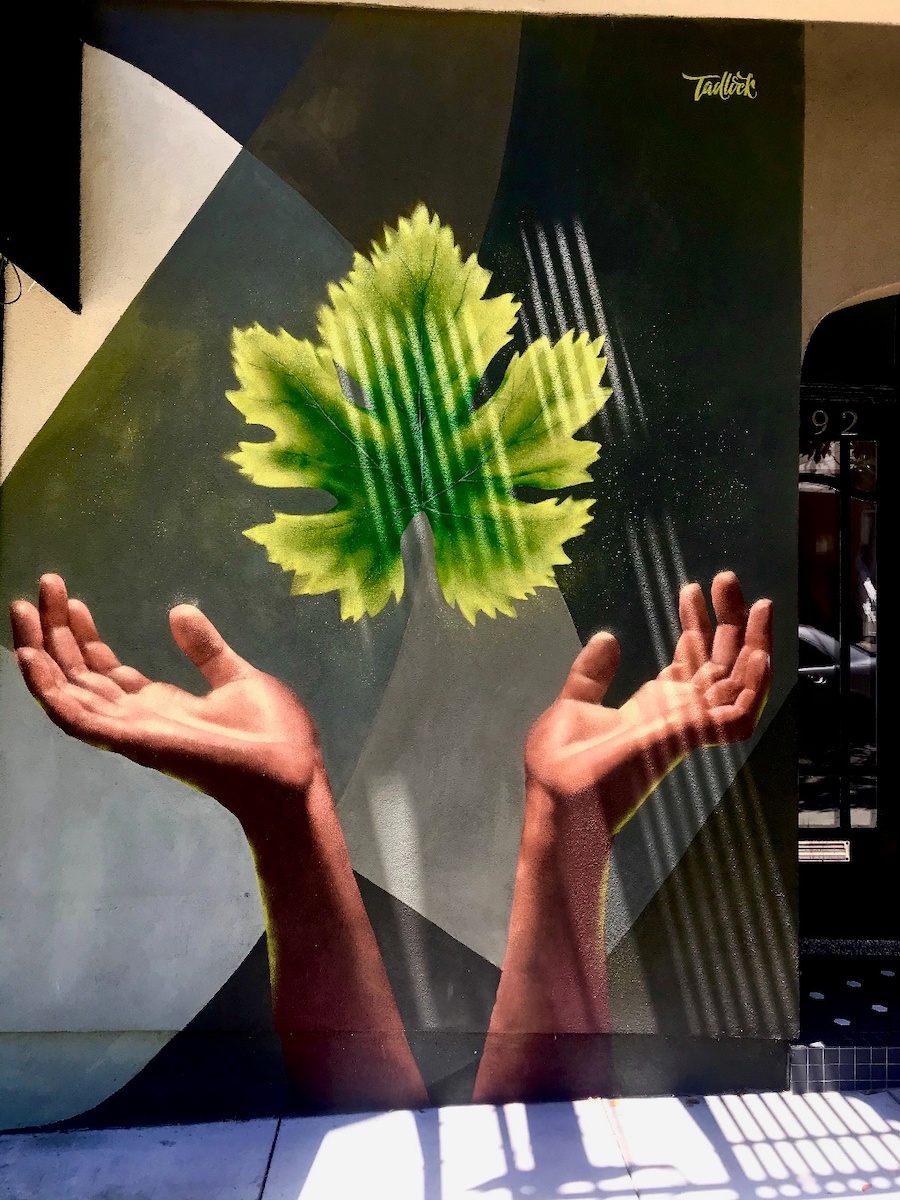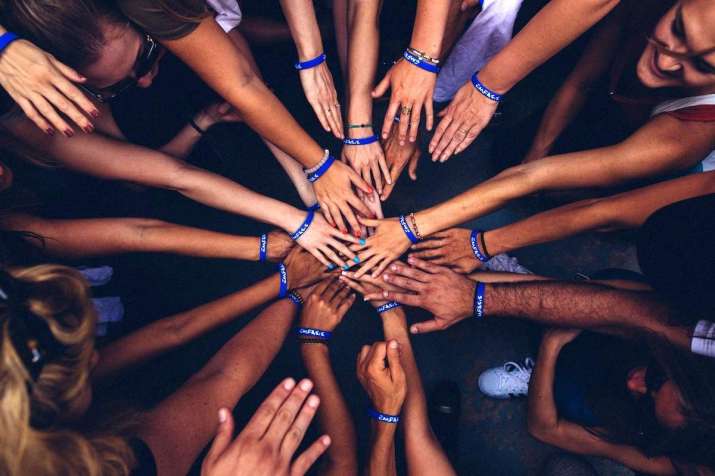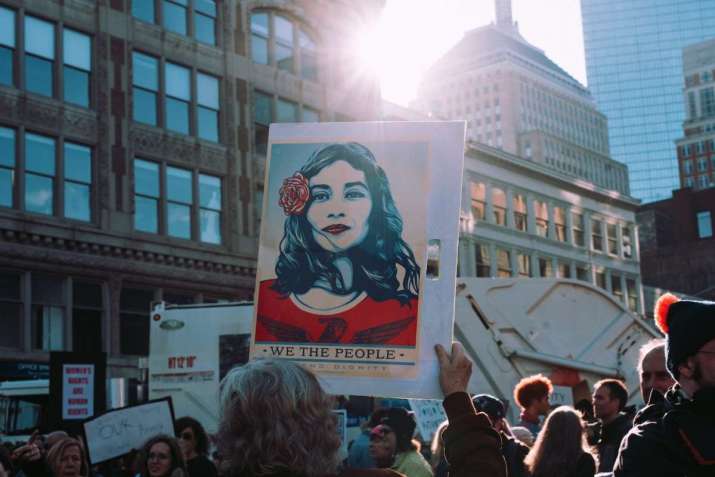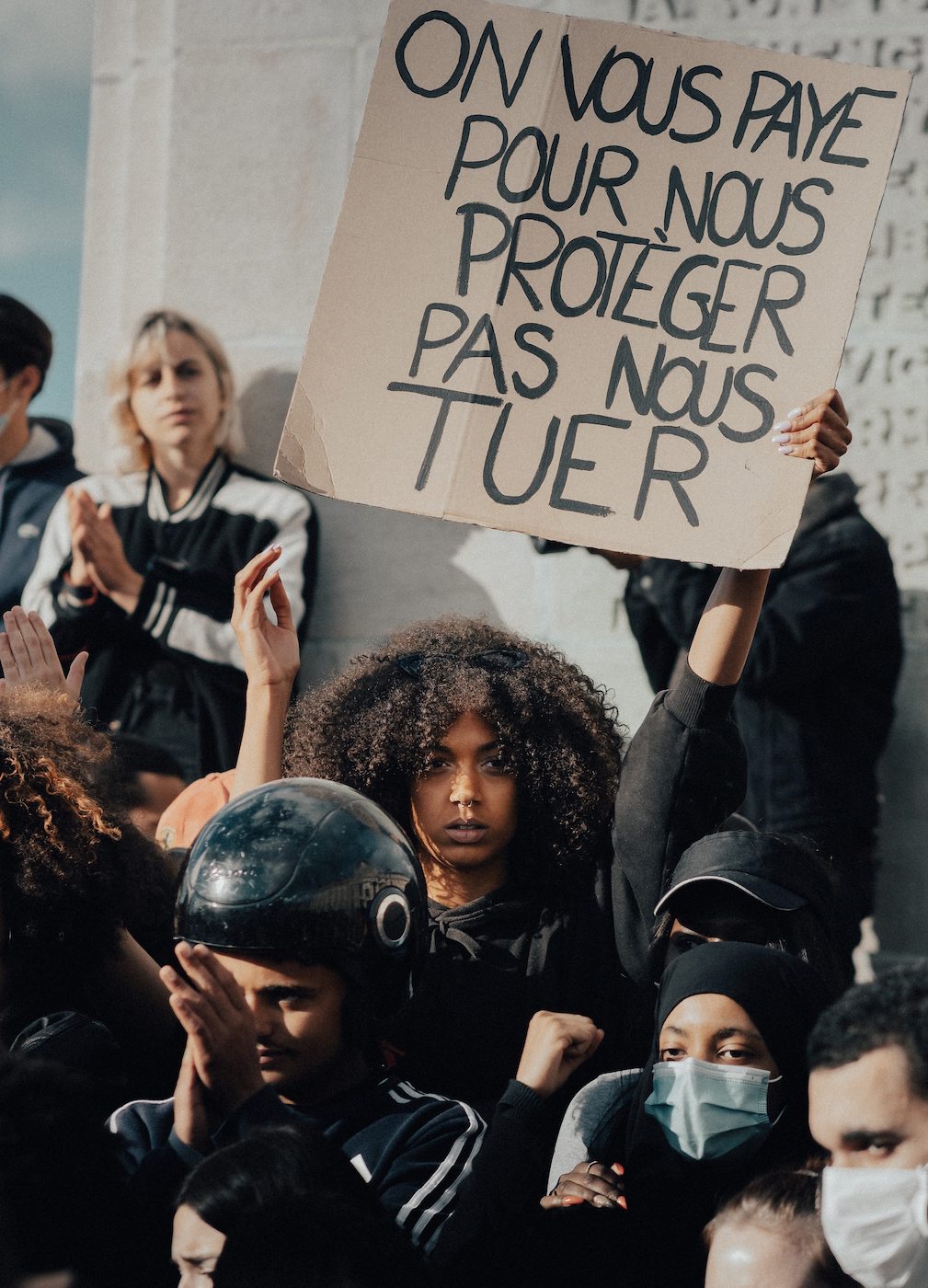FEATURES|COLUMNS|Creativity and Contemplation
Toward Liberation: Dismantling Racism and Bias in the Sangha

Street art by Alexander Tadlock, San Francisco, 2020.
Photo by Sarah C. Beasley
Love and justice are not two. Without inner change, there can be no outer change; without collective change, no change matters. — Reverend angel Kyodo williams*
The heart of Mahayana (and therefore Vajrayana) practice is prayer and practice for the enlightenment of all sentient beings. What is enlightenment? Becoming free from suffering by realizing the true nature of one’s mind. On the ultimate level, this is equally possible and true for all sentient beings to reveal. On the relative level, some of us have more access than others to dal jyor (Tib. freedoms and opportunities) to practice uncovering our mind’s true nature and freeing ourselves from the constraints of the ordinary (unaware) mind. Therefore, when we pray and practice for “myself and all beings,” we must mean it and take action within our sanghas and in the streets to fully help others.
 Photo by Perry Grone
Photo by Perry GroneI used to believe there was such a thing as “polite racism.” That overt bigotry and violence were more harmful than “polite” forms of racism, such as stereotyping, racial jokes, double standards, or offensive language. But now I realize how the subtleties of violence can be just as harmful over time. For example, the subtle inferences that a person of color has somehow brought about their fate (at hands of law enforcement or otherwise) are forms of emotional and psychological (as well as educational and fiscal) violence that deeply harm people, especially children. These can lead to more outward, dramatic forms of hurt, and the internalized oppression and depression that many people of color experience. Racial or ethnic violence comes in many forms, including repeating stereotypes and making assumptions. Negative body language and exclusionary actions are also very hurtful.
 Photo by Alice Donovan Rouse
Photo by Alice Donovan RouseIn our sanghas, we have the opportunity to redesign community dynamics for the most affected and marginalized, letting these voices and experiences lead, and acknowledging the barriers to their engagement in meditation or Dharma leadership. These barriers are real and it is critical for this new process of dismantling racism to confront head-on how, even amid our compassion practice groups, harm is carried out, whether conscious or unconscious.
We begin this process by more deeply examining our minds for subtle biases and for ways we might make others less inclined to join a Dharma group or take on a leadership role. We can also engage by confronting polite and overt racism within our family and friend circles. The exhaustion and emotion I feel in doing so doesn’t hold a candle to what Black, Indigenous, and people of color (BIPOC) must experience daily, but it is a step toward engendering compassion and connection for everyone.
Confronting our own and others’ ignorance is lifelong work. Ignorance, anger, and desire are our root poisons, so we dig down to the roots and start to loosen them. From the Buddhist perspective, this is evident in every word I chant in puja, recite in prayer, read in scripture. Nowhere does it say, “I will work for the enlightenment of all those I prefer or to whom can easily relate.”

Photo by Thomas de Luze
When we approach education, activism, prayer, meditation, and social interaction from various angles, we begin to see how each is interwoven. A small action here reverberates a little over there and the mandala of healing is strengthened. The seeds of this practice are to truly notice and begin to empathize with everyone: in our sanghas, in our jobs, on our streets, and in our homes.
To be Buddhist is to love: love others, love the path, love awakening. Since “love and justice are not two,” we take them together as our daily practice, that all may benefit.
* The Radical Buddhism of Rev. angel Kyodo williams (Lion’s Roar)
Sarah C. Beasley (Sera Kunzang Lhamo), Nautilus Gold award-winning author of Kindness for all Creatures: Buddhist Advice for Compassionate Animal Care (Shambhala 2019), has been a Nyingma practitioner since 2000. Sarah is a Certified Teacher, and an experienced writer and artist, with an MA in Educational Leadership and a BA in Studio Art. Sarah spent six years in traditional retreat under the guidance of Lama Tharchin Rinpoche and Thinley Norbu Rinpoche. With a lifelong passion for wilderness, she has summited Mt. Kenya and Mt. Baker, among other peaks. Her book and other works can be seen at www.sarahcbeasley.com.
See more
5 Responses to the Awkwardly Titled “New Face of Buddhism” (Buddhist Peace Fellowship)
Related features from Buddhistdoor Global
Buddhistdoor View: Finding the Right Balance with Social Justice Causes
“Hyphenated-American”
Buddhistdoor View: Honoring the Lessons of Martin Luther King Jr. for Today’s World
Harnessing Knowledge Technologies to Overcome Ignorance
Standing Together: Rev. angel Kyodo williams’ Radical Dharma – Book Review
Buddhistdoor View—Learning From Race Issues in The United States
Related news from Buddhistdoor Global
Los Angeles Buddhists Perform Silent Meditation Walk in Solidarity with Anti-Racism Activists
Dalai Lama Decries “Racism, Discrimination” Behind the Killing of George Floyd
US Buddhists Call for a United Stand Against Injustice and Suffering
How One Man Armed With Compassion Convinced 200 Racists to Quit the KKK














